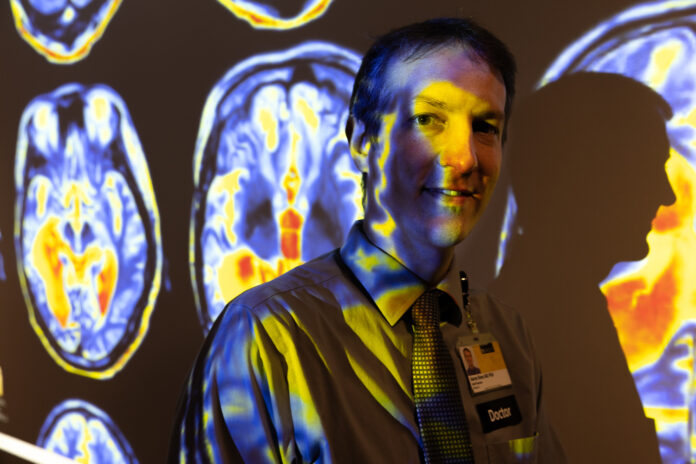
A study involving University of Iowa Health Care neuroscientists found a brain network associated with addiction while studying daily smokers who lost their nicotine addiction following a brain lesion.
The findings suggest targeting this network with neuromodulation therapies, such as transcranial magnetic stimulation or deep brain stimulation, could eventually be a solution for treating addiction, according to a press release.
A brain lesion is a brain damage in a localized area, often caused by stroke or injury. These brain lesions can affect a person’s physical and cognitive abilities and lead to dramatic changes in behavior, personality and habits.
Although the location of the lesions that led to loss of addiction varied from patient to patient, by mapping all the lesions onto a global brain connectivity map, the team was able to identify a specific network of brain regions associated with addiction, said UI Associate Professor of Pediatrics and Neurology Dr. Aaron Boes.
The same circuit is linked to a reduced risk of alcoholism, suggesting this may be a shared network for addiction to multiple substances, the press release states.
Dr. Boes says he wants to replicate the study with prospective data and evaluate whether the findings can be used to better target addiction-related brain circuitry.
The findings were published June 13 in Nature Medicine.




